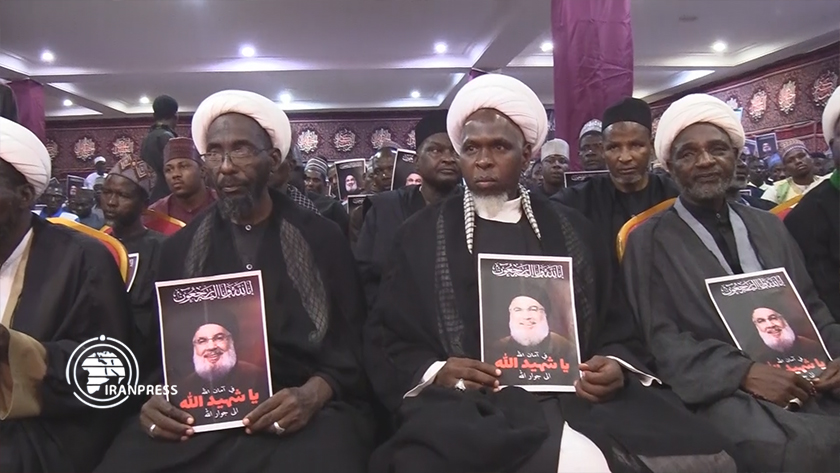The Resilience of Resistance: A Reflection on Sheikh Zakzaky’s Address
In a recent address in Abuja, Sheikh Ibrahim Zakzaky, leader of the Islamic Movement, reaffirmed the unyielding resolve of the resistance movements in the face of formidable adversities. Before a gathering of his followers, Zakzaky paid homage to Sayyed Hassan Nasrallah, articulating that his assassination by Israel will neither deter the fight to liberate Palestine nor halt efforts to dismantle what he described as a "cancerous regime" founded on "extortion, occupation, and terrorism."
Sheikh Zakzaky’s speech highlighted a historical continuum of struggle, referencing his 1992 visit to London where he learned about the assassination of the then-Hezbollah Secretary-General, Sayyed Abbas Musawi, by Israel. Musawi’s assassination paved the way for Sayyed Hassan Nasrallah’s emergence as a prominent leader. Nasrallah, initially unknown, eventually became a formidable figure who intensified the challenges faced by Israel and its allies, proving that leadership within Hezbollah is adaptable and resilient, transcending individual personas.
Zakzaky noted that the Zionists and their allies, particularly the United States, appear exhausted in their attempts to stifle resistance movements in Gaza and Beirut. Despite the intense exertions of power, these efforts have not quelled the spirit or momentum of the resistance. "Yes, we mourn Nasrallah’s martyrdom and we cry that his body left us," Zakzaky stated, underscoring the profound loss while simultaneously expressing unwavering faith in the continuation of their cause. He portrayed Nasrallah as a distinguished warrior, closely linked to influential Islamic figures like Imam Mahdi and Ayatollah Khomeini, yet firmly believed that his legacy would be carried forward by another capable leader.
This resilience and continuity are symbolic of the broader undertakings known as the Axes of Resistance, a coalition comprising groups and states that oppose Western and Israeli policies in the Middle East. The assassination of key figures, Zakzaky argued, only invigorates the movement, ushering in new leadership and sustaining their resistance against perceived injustices.
Sheikh Zakzaky also applauded recent actions by Iran, particularly their missile attacks on Tel Aviv, which he interpreted as retribution against the Zionist regime. These actions, he asserted, were a cause for celebration among the oppressed populations worldwide, heralding a sense of justice and resistance.
As the global community continues to observe the interplay of these complex geopolitical narratives, the remarks from influential figures like Sheikh Zakzaky highlight the enduring nature of resistance movements and their impact on regional dynamics. The struggle for liberation, as championed by leaders like Zakzaky and Nasrallah, remains a pivotal chapter in the ongoing discourse around Middle Eastern geopolitics, sovereignty, and resistance.
